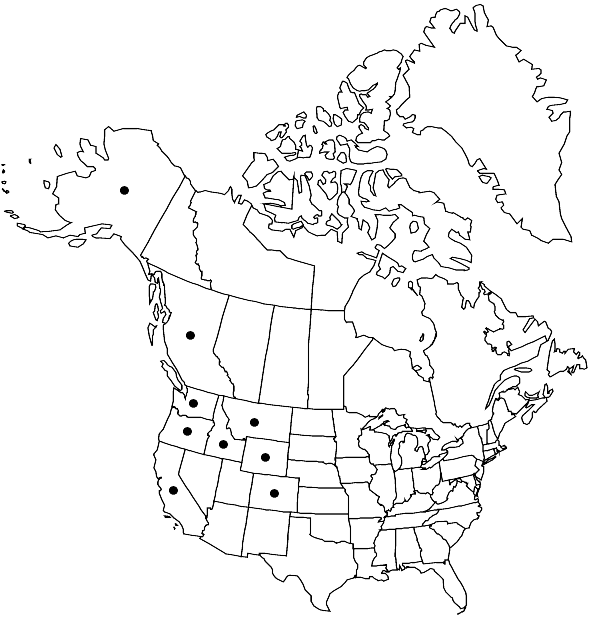Difference between revisions of "Bucklandiella macounii subsp. macounii"
FNA>Volume Importer |
imported>Volume Importer |
||
| (2 intermediate revisions by 2 users not shown) | |||
| Line 40: | Line 40: | ||
|publication year= | |publication year= | ||
|special status= | |special status= | ||
| − | |source xml=https:// | + | |source xml=https://bitbucket.org/aafc-mbb/fna-data-curation/src/2e0870ddd59836b60bcf96646a41e87ea5a5943a/coarse_grained_fna_xml/V27/V27_387.xml |
|subfamily=Grimmiaceae subfam. Racomitrioideae | |subfamily=Grimmiaceae subfam. Racomitrioideae | ||
|genus=Bucklandiella | |genus=Bucklandiella | ||
Latest revision as of 21:26, 5 November 2020
Plants fairly large to robust, olivaceous or brown at the apices, reddish brown to blackish proximally, dull, occasionally more greenish. Leaves contorted, (2–)2.3–2.8(–3) × 0.5–0.8 mm; muticous or awn short, to 0.1 mm, strongly spinulose, erect and occasionally somewhat recurved; costa 80–100(–150) µm wide near the base, 45–70 µm wide distally; basal marginal border composed of 15–40 short, pellucid, not or moderately sinuose cells; medial and distal laminal cells oblate, quadrate to short-rectangular, 5–12 × 8–9 µm, moderately or seldom more prominently pseudopapillose. Capsule obloid-cylindric, 1.7–1.9 × 0.6–0.8 mm; peristome teeth to 330 µm.
Habitat: Hydrophilous, acidic rocks and stones in streams and waterfalls, vertical bluffs wet by irrigated water, rock slabs wet from snowmelt, wet montane tundra-like barrens, sometimes sandy loam
Elevation: moderate to high elevations (500-3500 m)
Distribution

B.C., Alaska, Calif., Colo., Idaho, Mont., Oreg., Wash., Wyo., Europe, Atlantic Islands (Iceland).
Discussion
Subspecies macounii is a montane moss occurring in western North America in the coastal region from Vancouver Island to northern California, and in the Rocky Mountains from southern Alaska to Colorado. The taxon is readily recognized by its characteristic habit including fairly robust, dull, distally more olivaceous plants with distinctly crisped leaves. Moreover, the awns are usually absent or very short, less than 0.1 mm, and strongly spinulose, the costa is very robust and broad, 80–100, sometimes to 150 µm wide near the base, the capsule is obloid to short-cylindric, 1.7–1.9 mm, and the peristome teeth are very short, about 330 µm.
Selected References
None.